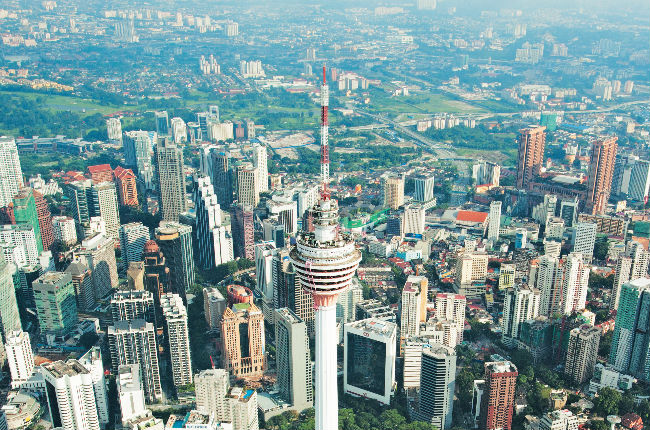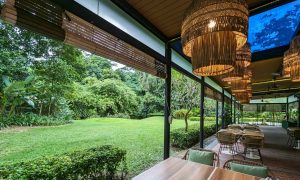
Gauging the relative cost of living in a given city isn’t always as straightforward as one might think. While certain economic models, such as purchase power parity, make it a bit more clear, it’s important to take into account factors such as transportation costs, average incomes, and more. Individual elements are easy to compare: how much does an apartment of a certain size cost in one city versus another? But are those apartments really equal? And what about the overall quality of life – does that come into play when discussing the cost of living for expats?
Looking at the just-published 2014 Cost of Living City Rankings index from Mercer, it would appear that it does. The index is a comprehensive survey that measures the comparative cost of more than 200 goods and services in each location, including housing, transportation, food, clothing, household goods, and entertainment, and is often referenced by MNCs and governments when determining expat allowances and compensation packages for overseas assignments.
The two most expensive cities for expats are Luanda, Angola (ranked #1 for the second year in a row), and N’Djamena, Chad. Now if that comes as a bit of a surprise to you, or indeed if you hadn’t even heard of these cities before, it’s understandable. The reason these two cities in Africa are so expensive for expats is directly related to quality of life – in other words, to have any, it costs a fortune. For those assigned to Luanda, living safely in a country beset by three decades of civil war comes with a steep price tag, as expats prefer to live in guarded, gated communities and be close to secure international schools. A two-bedroom apartment in Luanda costs an average of US$6,600 per month. The same reason Luanda topped the list made N’Djamena number two: safe housing is hard to come by and expensive when found. Making matters worse, basic goods that expats would likely want almost always have to be imported, driving costs higher. In N’Djamena, Mercer reports, an unremarkable lunch of a sandwich and soda will set expats back roughly US$26.
The cities that occupy the next two spots will come as no surprise to any expat living in Asia: Hong Kong (#3) and Singapore (#4). Rents are stratospheric in densely packed Hong Kong, with an average two-bedroom apartment costing just under US$7,000 per month. Singapore is downright reasonable in comparison, with a similar apartment averaging about US$3,700 per month, but even visitors to the Lion City can see that virtually everything in Singapore is costly, with US$15-20 pints of beer along expat hotspot Clarke Quay not at all uncommon. With Singapore’s excellent public transportation network a great option, many expats stationed there choose not to drive. For those who do, expenses take a substantial leap, as owning and driving a car in Singapore is unbelievably expensive, owing to the city-state’s vehicle quota system and a policy of requiring its residents bid on the right to buy a car and use it for 10 years. With final prices for that right often approaching or even exceeding US$80,0000, the Certificate of Entitlement can sometimes exceed the cost of the actual car. Coupled with exorbitant parking fees and high petrol prices, driving yourself around in Singapore can exact a crippling toll on your bank account.
So what about Kuala Lumpur? To find the Malaysian capital on this ranked list of 211 cities worldwide, you have to go all the way down to #115. Though property prices in KL have soared in recent years, and subsidies are being methodically rolled back on petrol and food staples, the cost of living here is still impressively affordable. With a fairly modern infrastructure, a slowly improving public transportation system, and what’s probably an oversupply of housing, especially higher-end units in the city centre, KL offers the expat a great deal. Petrol is still inexpensive, particularly compared with European countries and even neighbours Thailand and Singapore, and good food is almost impossibly cheap on the low end and still surprisingly affordable on the high end. That sandwich and soda that would cost you US$26 over in N’Djamena will likely not even cost that much in ringgit here in KL, so less than US$8. (And with the proliferation of Western-style cafés and bistros in Greater KL over the past few years, the quality of that sandwich is bound to be better, too.) Even in the KLCC area, fancy apartments can be had for under US$2,000 per month, and if you venture away from the heart of the city, that figure can easily drop by half.
Some other notable Asian city rankings were Tokyo at #7, Shanghai and Beijing and #10 and #11, respectively, Seoul at #14, Yangon at #66, Bangkok at #88, Jakarta at #119, Manila at #125, and Ho Chi Minh City at #135.
Source: The Expat Magazine August 2014
Read more:
- Cost of Living Comparison: KL and Bangkok
- Cost of Living Comparison: KL and Australia
- Cost of Living Comparison: KL and Jakarta
What are your thoughts on this article? Let us know by commenting below.No registration needed.
"ExpatGo welcomes and encourages comments, input, and divergent opinions. However, we kindly request that you use suitable language in your comments, and refrain from any sort of personal attack, hate speech, or disparaging rhetoric. Comments not in line with this are subject to removal from the site. "




















